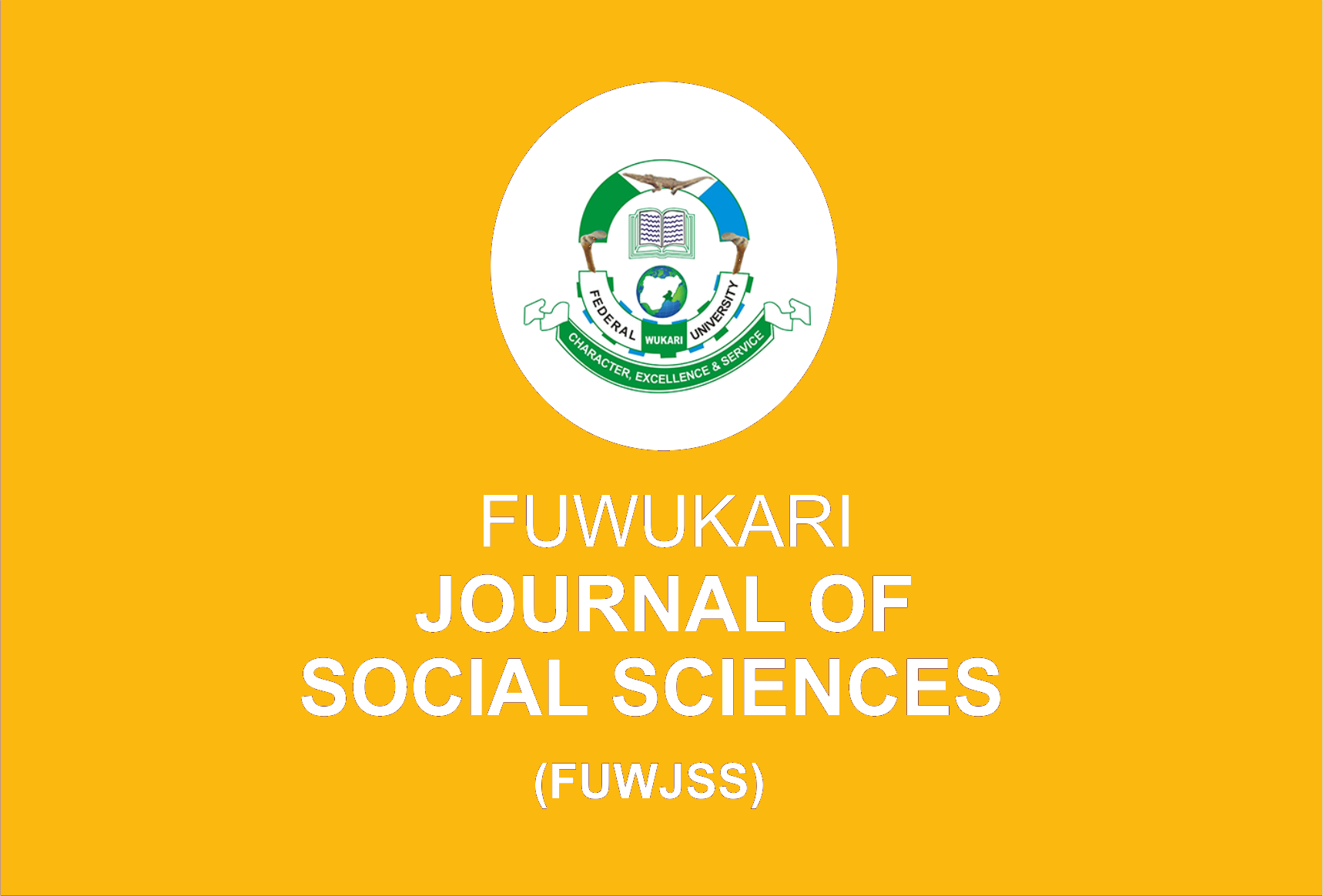Quality Of Comprehensive Sexuality Education And Risky Sexual Behaviour In Nigeria’s Higher Institutions Of Learning
Olukemi Grace Adebola, Olusegun Sunday Ewemooje, Femi Barnabas Adebola
Keywords: Adolescent, sex education, poverty, risky behaviour
Abstract
There are increasing interests among countries of the world, including Nigeria, to establish age-appropriate Comprehensive Sexuality Education (CSE) at primary and secondary school levels in order to prepare children and adolescents for healthy sexuality at older ages. Inspite these efforts, there seem to be a surge in risky sexual behaviours among students of higher institutions in Nigeria. In attempts to understand this enigma, this study interrogates the quality of CSE as delivered at Nigeria’s primary and secondary educational institutions prior to tertiary education vis-à-vis undergrdautes’ exposure to and involvement in risky sexual behaviour. The study employed a cross-sectional survey design which involved quantitative data collection from undergraduate students at Federal University of Technology, Akure (FUTA), Nigeria. Univariate, bivariate, and binary logistic regression analyses were used to predict the contribution of Comprehensive Sexuality Education to risky sexual behaviour. Results revealed that 62% of undergraduates who received CSE prior to tertiary education were found to be actively involved in risky sexual behaviour. Also, undergraduate students who had CSE by the end of their secondary education were significantly more likely (𝑂𝑅 = 1.517; 𝐶𝐼 = 1.089 – 2.113) to be involved in risky sexual behaviours. The study concludes that adolescents in Nigeria’s higher institutions are predisposed to risky sexual activities despite their prior exposure to Comprehensive Sexuality Education (CSE). The study recommends that quality CSE should be inculcated into tertiary education in Nigeria.
Author Biography
Olukemi Grace Adebola
Institute of Technology-Enhanced Learning and Digital Humanities (INTEDH)
Federal University of Technology, Akure, Nigeria.
Olusegun Sunday Ewemooje
2Department of Statistics, University of Botswana, Gaborone, Botswana.
Femi Barnabas Adebola
Department of Statistics, Federal University of Technology, Akure, Nigeria
Corresponding author: [email protected]
Ogochukwu Favour Nzeakor, Alu Alfred Ede, Chibuike Ndubuisi Nwoke, Samuel Kalu Obasi
Keywords: Internet, cybercrime attack, online account, ICT gadgets, social media
Abstract
Arguments persist to canvass that a person could be a victim of cybercrime attack if even the person does not have access to the internet. However, prevailing arguments canvassed a correlation between increased internet penetration and increased cybercrime attacks. Thus, this study examines the relationship between internet penetration and cybercrime attacks in Abia State, Nigeria. Data for this study emerged through the administration of questionnaire to 1104 respondents between the ages of 20 years and 70 years in Abia State, Nigeria. The study’s results confirmed that smart phone (61%) and computer (33%) were the most common ICT gadgets owned by respondents. Also, on average, respondents who own smart phone and other gadgets tend to experience more cyberattacks (M = 2.53, S.D = 1.63) than those who own only smart phones (M = 2.17, S.D = 1.41), t(923) = 3.453, p < .05, r = .11. Facebook (24%) and WhatsApp (23%) were the most commonly operated online accounts; followed by email (19%), Instagram (11%), and Internet banking (10.8%). That about 4 in every 5 respondents operated more than one online account. Respondents who operated/owned more than one accounts are more vulnerable to cyber security attacks (M = 2.43) than those operated only one account (M = 2.16) and those who operated no account at all (M = 2. 03), f(923) = 2.889, p = .05, r = .10. The study
Author Biography
Ogochukwu Favour Nzeakor
Peace & Conflict Studies Unit, School of General Studies
Michael Okpara University of Agriculture, Umudike.
Abia State, Nigeria
Alu Alfred Ede
Peace & Conflict Studies Unit, School of General Studies
Michael Okpara University of Agriculture, Umudike. Abia State, Nigeria
Chibuike Ndubuisi Nwoke
Department of Sociology & Anthropology
The Faculty of Social Sciences, University of Nigeria, Nsukka, Nigeria
Samuel Kalu Obasi
Social Science Unit, School of General Studies
University of Nigeria, Nsukka, Nigeria
Corresponding author: [email protected]

